
Philippine education therefore must produce Filipinos who are aware of their country’s problems, who understand the basic solution to these problems, and who care enough to have courage to work and sacrifice for their country’s salvation,” Renato Constantino wrote in his essential essay, The Miseducation of the Filipino People.
Now, has our education led to our salvation or has our miseducation maintained our subjugation?
Two years of fighting for LNBE
A known basic right, education is crucial to society’s development – it is part of what builds a nation’s future. It sheds light on centuries of history to illuminate the saying, “those who do not learn history are doomed to repeat it.” And for this specific reason, education must be a priority.
Yet, the education system across the globe has been hit with a crisis: the COVID-19 pandemic. Classes were suspended, shut down, and for more than a year, lessons were conducted online. Bit by bit, some countries have started conducting physical classes again, despite the pandemic.
The Philippines? No. In September 2021, the Philippines and Venezuela were the only ones who haven’t returned to classroom learning. By October 2021, over 8.7 million students in Venezuela have come back to school.
For two academic years, Filipino students have been calling for #LigtasNaBalikEskwela because of all the physical and mental hardships experienced due to remote learning. Truly, the best way to learn and develop skills at a young age is in a classroom: peer learning, a focus-oriented environment, which the online set-up amid the pandemic cannot fully provide.
However, remote learning is not an exception but a rule. This forces us to study the kind of education system we have.
Long before the pandemic, our education system has already been in a crisis. Still rooted in colonial origins, commodified at a high price, and imprisoned millions to status quo orthodoxies, our education is clearly a miseducation.
Given this, let us measure if the quality of education is “quality” enough.
There is no doubt that financial status plays a big role in one of the key issues in the country: inaccessibility. Students coming from rich households and living in developed cities can afford private schools with complete facilities, high quality education — but is it really? — while others are left to deal with the opposite: lack of classrooms, resources, and poor quality of teachers.
In short, an education that does not respond to personal growth and national development but one that is oriented towards profit accumulation and alienation.
As kids, we have all heard our families pointing at the inhabitants of the slums of our cities, whispering to us, “If you don’t study hard, you will end up just like them.” But the poor did not choose to be poor – everyone wanted an education, they simply did not have the means for it.
But it does not stop there.
Education that was miseducation
What kind of education do we have? It is colonial, commercial, and anti-democratic. There is no doubt that the history of our education system comes from the Spaniards, and then “reformed” by the Americans to so-called promote our nationalism.
Yet, the hard truth is that it was just an imperialistic apparatus for subjugation. Who taught our country’s first students during the American regime? American teachers. What did they teach? American history, culture, politics—the Americanization of “little brown brothers” to make them dependent on the USA.
Why is it that until now, our primary medium of instruction is English? Why do some schools establish an “English-only zone” when it is a school established in the Philippines, for the Filipinos? For one month, we celebrate Buwan ng Wika, encouraging us to speak Filipino. But it all stops after a month of pretending.
Such colonial mentality we have, that we think it’s much better and wiser to understand and speak the American language as Filipinos. If one cannot or can barely understand and speak it, they’re looked down upon. We have taken a liking to anything manufactured in the West, seeing what is locally made to be inferior.
While what has been established in schools during that period has also paved the way for our own government, is it not just as influenced with Western ideals and traditions? With how the government is handling our country now, it seems as if more and more students wish to go abroad, seeing a better future for themselves out there.
An education that teaches Filipinos to remove their own identity does not teach nationalism at all.
Slowly and bit by bit, we have generated a change in attitude geared towards a high social status. Changes in the economy is reflected in our political and cultural attitudes, such as the irrational pursuit of possession of wealth and business.
Humanities is just as essential as science and entrepreneurship for we learn about history, culture, and our identity. Yet, its “lower status” is dictated by a society keen on profit accumulation, rather than personal development.
Success was measured in the acquisition of cash and resources, and no longer knowledge. This is what Filipino historian Renato Constantino described as the “miseducation” of the Filipino people.”
Towards a National, Scientific, and Mass-Oriented (NSMO) Education
The Americans did not simply develop the public school system for simple reasons. It was for colonial exploitation – to obtain our goods and services, an economic relationship that only benefitted them.
Before it was hit with a pandemic crisis that forced its students to go under blended learning, our education system was already plagued with a commercial education system. For all of this, our education system needs to be reformed, and it needs to be reformed now.
What would a nationalist, scientific, and mass-oriented (NSMO) education mean for the Filipino student?
It would mean that our educators will shape our minds to be nationalists in a sense that we are being taught not to simply work jobs, but are taught to promote genuine change that maximizes our country’s resources so we become self-sufficient and independent from foreign domination.
We must not be educated for foreign exploitation, but taught to understand our history, our people – to love our culture and values and serve the country. To be a nationalist that serves the oppressed and exploited people is what we should aim to be.
Because society is constantly changing and evolving, a scientific education would mean an analysis of concrete needs to propose concrete solutions to liberate ourselves from the lies implanted in us and chart a new destiny with a rekindled fire for knowledge production and application.
In a country whose majority is the marginalized and the vulnerable do not have access to social services, a mass-oriented education would mean service to the Filipino people.
It is in this kind of education that we slowly fix the inadequacies of our current education system; we are then able to address the shortage of classrooms, textbooks, budgets for schools, and teachers’ salaries.
We must reorient education towards our liberation and break free from subjugation.
This education pushes forward for an all-Filipino education – no longer anti-poor and unequal, no longer only for the elite and those who can afford it.
Today, January 24, on the International Day of Education, it must not only be commemorated.
It is a day for us Filipino students to fight for an education that corrects the mistakes of centuries-long miseducation.
An education that lets us “think of ourselves, of our salvation, of our future” as Constantino teaches us, is what all Filipino students genuinely deserve — an education that teaches us our freedom.
Featured image courtesy of PRWC Newsroom


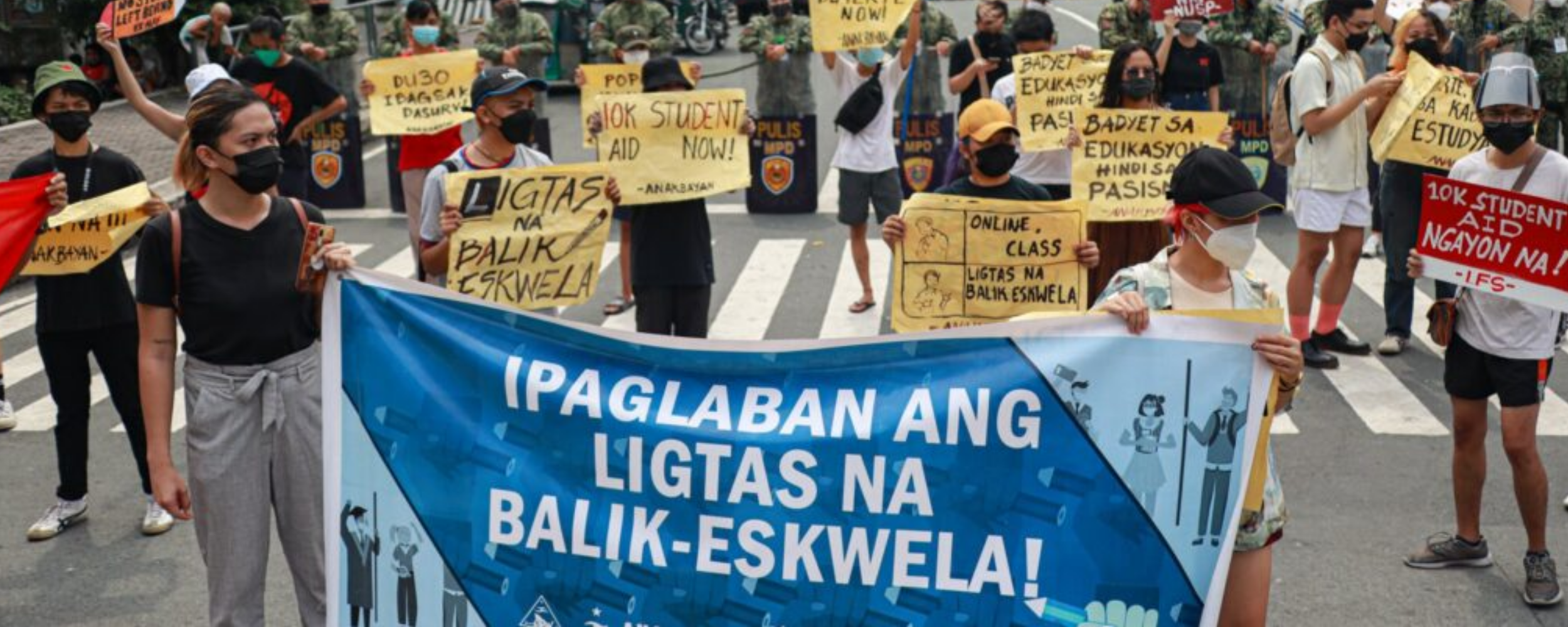
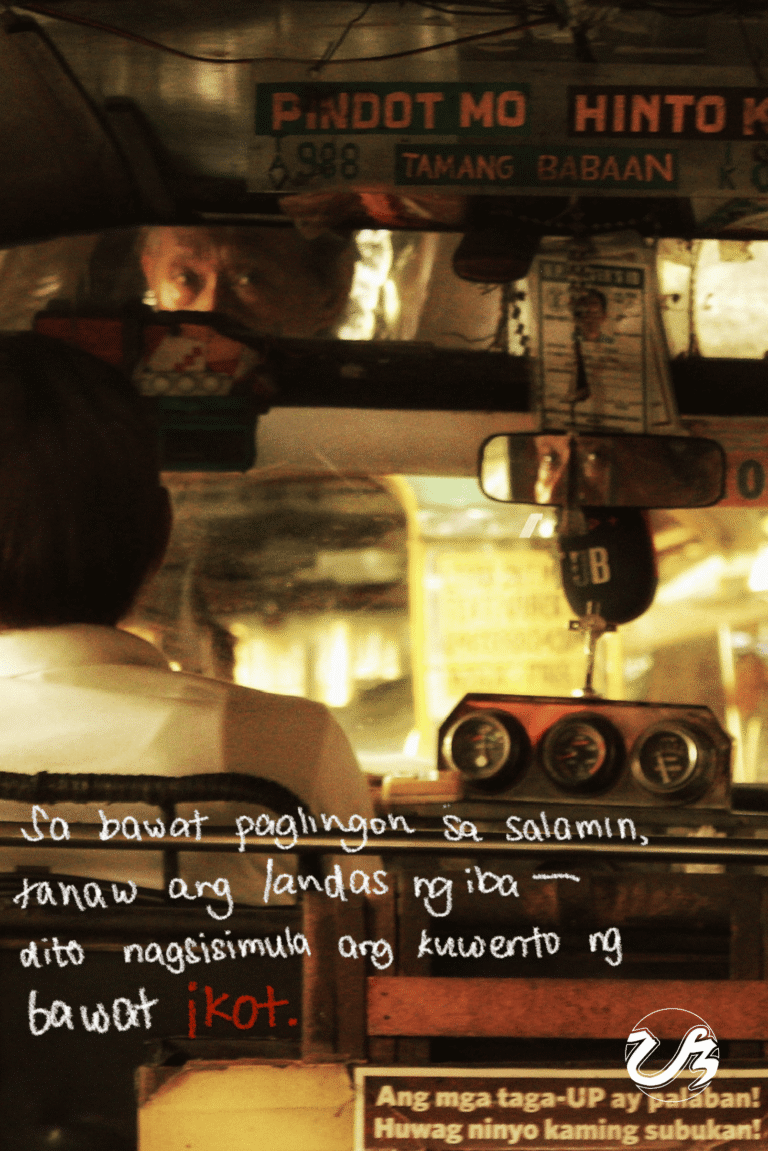

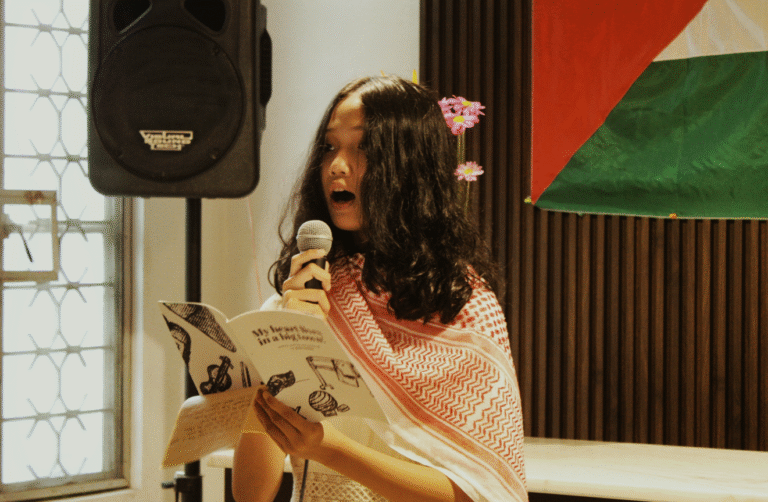
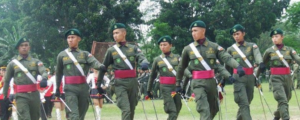
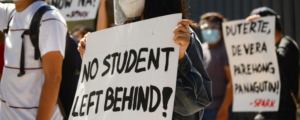
Хорошая статья, в которой представлены факты и документированные данные.